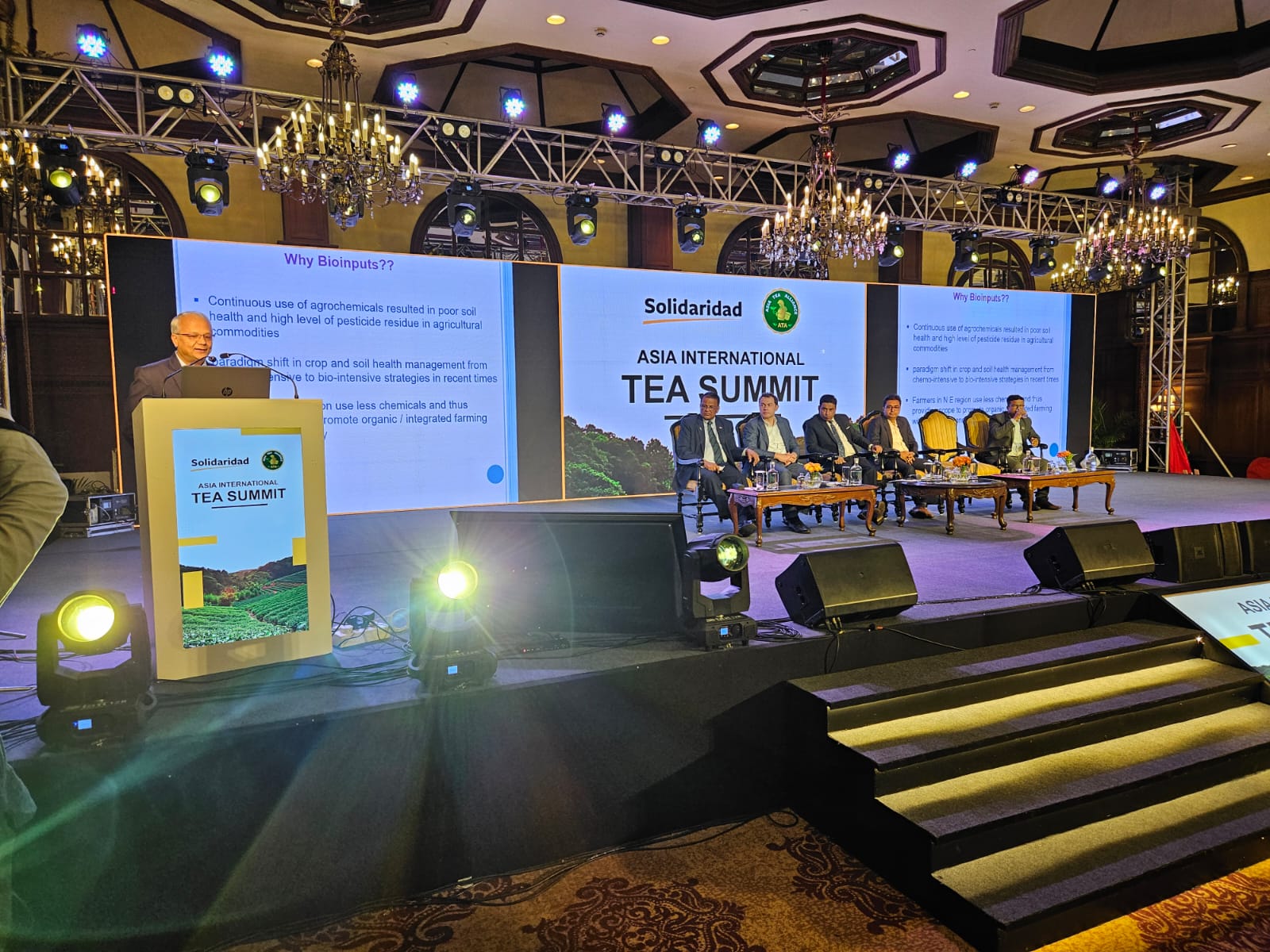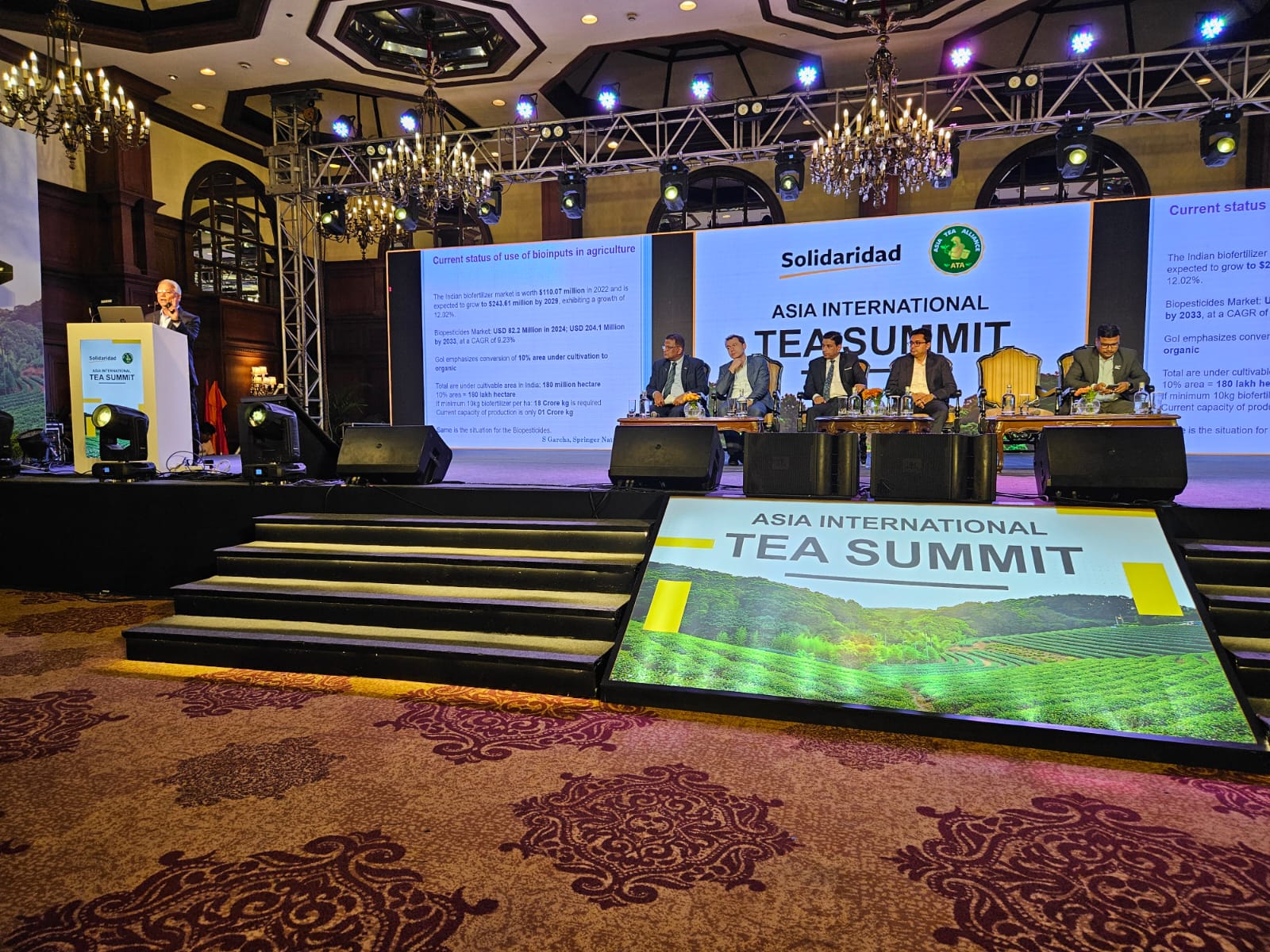Professor Bidyut Kumar Sarmah Illuminates Path for Sustainable Tea Agriculture at Asia Tea Alliance Summit in Kolkata
Date: 11-11-24
Event Details:
The recent Asia Tea Alliance (ATA) summit in Kolkata witnessed a groundbreaking presentation by Professor Bidyut Kumar Sarmah, a leading voice in sustainable agricultural practices. Invited by Solidaridad Asia, which serves as the convener of ATA, Professor Sarmah delivered an insightful session on innovative soil health management at the November 7 conference.Held annually with rotating host countries, the ATA summit brings together leaders from Asia’s foremost tea-producing nations, including India, China, Sri Lanka, Indonesia, Nepal, and Bangladesh. In light of Asia’s significant role as both the world’s largest tea producer and consumer, the summit aims to address urgent challenges in the tea industry, promote sustainable growth, and strengthen the collective influence of Asian producers on the global stage.
Professor Sarmah’s presentation centered on an "Integrated Approach for Improving Soil Health," where he highlighted the potential of combining bio-formulations, biochar, and vermicompost to rejuvenate tea plantations' soil. This integrated model of soil management resonated strongly with summit attendees, offering a clear and actionable framework for tackling soil degradation—a key concern for tea producers across the region. His 10-minute presentation, followed by an engaging Q&A session, sparked discussions on how such practices could be adapted to diverse agricultural landscapes within the Asian tea sector.
This year’s ATA summit also emphasized the advancement of regenerative agriculture and explored ways to support small tea growers facing economic and environmental pressures. Professor Sarmah’s approach, rooted in practical applications and scientific rigor, addressed these themes and underscored the benefits of sustainable practices that promote both soil health and long-term productivity.
Solidaridad Asia, in collaboration with ATA, extended full support for Professor Sarmah’s attendance, recognizing the immense value his expertise brings to the region's tea producers. His contribution has already been hailed as a pivotal moment in the summit, inspiring many to adopt sustainable agricultural practices that can ensure a resilient future for the tea industry.
With the summit concluded, Professor Sarmah’s impact continues to ripple across the industry, encouraging stakeholders to prioritize soil health and sustainability in their practices, and marking a step forward in uniting Asian tea producers under a common mission of resilience and sustainability.



